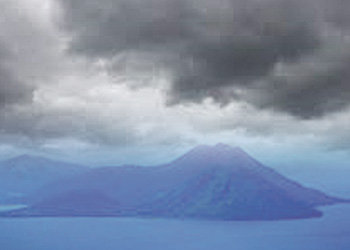The island of dark clouds
The island of dark clouds
Posted August. 11, 2020 07:55,
Updated August. 11, 2020 07:55

On December 26, 1943, the First U.S. Marine Division landed on New Britain Island. A long-shaped island on the eastern end of New Guinea, New Britain was home to the much-famed Fortress Rabaul, the base of the Japanese air force. The U.S. marines arrived in Cape Gloucester, the opposite side on the island. Such a tactic helped minimize resistance, but they had to make their way through a grueling and meandering path to reach Rabaul.
The nature of the South Pacific was entirely different from what they had been used to. Welcoming the visitors were topographies and climates simply unheard of. Different islands had their own share of horrendous features such as stinking jungle, mires, downpour, leeches, bugs, and contagious diseases, but each had a condition that is more peculiar or simply much nastier than others.
The forte of New Britain was rain. In fact, the island was draped with dark clouds. Heavy rain was the norm. According to some witnesses, it took almost a month for the marines to see the first sun on the island. When the soldiers were busy hanging out clothes and blankets to dry, enemy planes would scramble to attack.
The heavy rain deepened the mires, and the thick jungle grew even thicker. Everything turned moldy; the humidity was tough for human skin to survive as well. Hammocks were a must as the land was always wet. Every night, soldiers would fight over strong trees to hang their hammock on. Even the good ones would collapse and fall on the men as the foundation was sapped by the constant rain. They needed a tree that wouldn’t fall even if it is not necessarily big or thick.
Such a story, which would have been recounted half a century ago in the South Pacific, has become reality for us. A week-long monsoon season is nothing new, but it has been a deluge after deluge seven days straight, which is a first. Warnings of climate change have existed for 20 years. Admittedly, natural disasters cannot be completely prevented by human, but they should never be ignored or put on the back burner for political reasons.




![[천광암 칼럼]장동혁은 대체 왜 이럴까](https://dimg.donga.com/c/138/175/90/1/wps/NEWS/IMAGE/2026/02/22/133399127.1.jpg)


